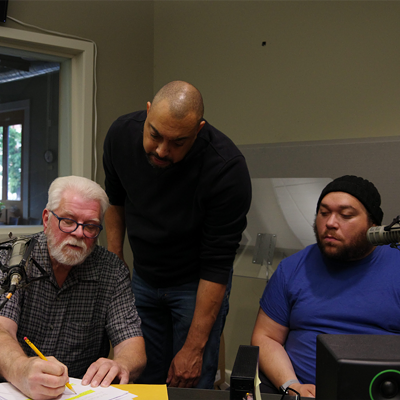Wednesday, November 7, 2012
The Moral Quandaries of Daniel Morales, Human Nielsen Family
What if your vote counted for a lot more than just one measly person? What ifyour vote was extrapolated to represent hundreds of people? And what if yourvote, instead of changing the course of monetary policy, civil rights or whichcountries get invaded and how hard, counted for things that impact you much moreclosely: Whether your favorite television shows get canceled.
As a TV critic, as just a fan of the medium itself, I’ve long held a grudgeagainst TV ratings. They killed Terriers. They killedFirefly. They’ll probably kill Last Resort.
But last week, I opened my mailbox to discover a mysterious envelopeaddressed to a “Daniel Morales” at my apartment number. And it’s from a companycalled “Nielsen.”
“We’ve produced the TV ratings for over 50 years!” the envelope proclaims.
It was every TV fan’s dream: I, or somebody who shared my first name, hadbeen handed the power of life or death over television. For once, whether or notI watched a program would actually matter.
Inside were five crisp 1 dollar bills, presumably a hefty sum 50 years ago,but an insulting sub-grandparent-birthday-card sum today. Also inside was apaper salmon-colored booklet that appeared to be printed on the same material used for SAT tests.
But that’s where the catch came in: Right on the Nielsen Viewing Diarybooklet’s front it said: This Diary is for the TV in room: ________.
That’s a trick question. I don’t have a TV.
Despite watching hours and hours – months if you add them all up– of television programs, the notion of watching them on actual honest-to-godteevee set feels as old-fashioned as making movie-popcorn using a fire pit and butter churn.
This is the age of downloads and streaming, Netflix and Hulu. These are thedays where a TV fan in Seattle can finish watching an episode of Sonsof Anarchy before the “Previously On” sequence even starts on the West Coast.
“Unlike a newspaper or magazine, where a publisher can count how many copiesor sold, there is no simple way to know how many people are watching anyprogram,” a brochure in the envelope read, “The Nielsen Company measures theaudience of TV programs with the information gathered from people like you.”
Imagine that. The Nielsen Company was asking me to sit down, in front of aphysical television set, pick up a pencil (do they still make those?) andmanually record every single show that I watched on which channel and when.
It seems stunningly inefficient. The diary wanted me to record any show thatI watched, even only for a minute. If, say, I watched Gossip Girlbecause I just HAD to see if Blair and Dan were going to patch things up,that doesn’t mean I would want to admit such embarrassing habits to theViewing Diary. It’s a system easily overturned by fraud, inaccuracies,omissions and just plain laziness. The Nielsen Company had randomly assignedhomework — optional homework — and an entire medium hinged on whichviewers completed it.
And for people like me, without a TV, it was a moral quandary: To make anyimpact on the television landscape I would have to lie. For one, Iwould have to pretend my name was Daniel Morales. I would have to pretend that Ihad a TV. And I would have to go through the effort look up when which show airswhere and weave an elaborate alternate history where I had plopped in front of aflat-screen, instead of a laptop, for hours at a time. I would have tocross-reference, making sure that television programs I’d supposedly watcheddidn’t actually occur at the same time.
To do so could a help save a great but low-rated shows like Last Resortand Parks and Recreation. But it would also mean putting a lot ofwork into what, ethically, was equivalent to voter fraud.
Ultimately, I couldn’t do it. First of all, it was wrong. And moreimportantly, I was lazy.
It might seem like the Nielsen system was hopelessly outdated. It a way, itwas. But the point was never to measure which television shows were beingwatched. It was to measure how much of commercials in between certain TV showswere being watched.
The modern way of watching television – cheap, nearly commercial free, andoften illegal – doesn’t make make much money. To the business model oftelevision networks, it’s essentially irrelevant.
Yes, the paper booklet and gift of five $1 dollar bills are relics from another time.But so is the TV industry.
Tags: Television , Arts , Image



















